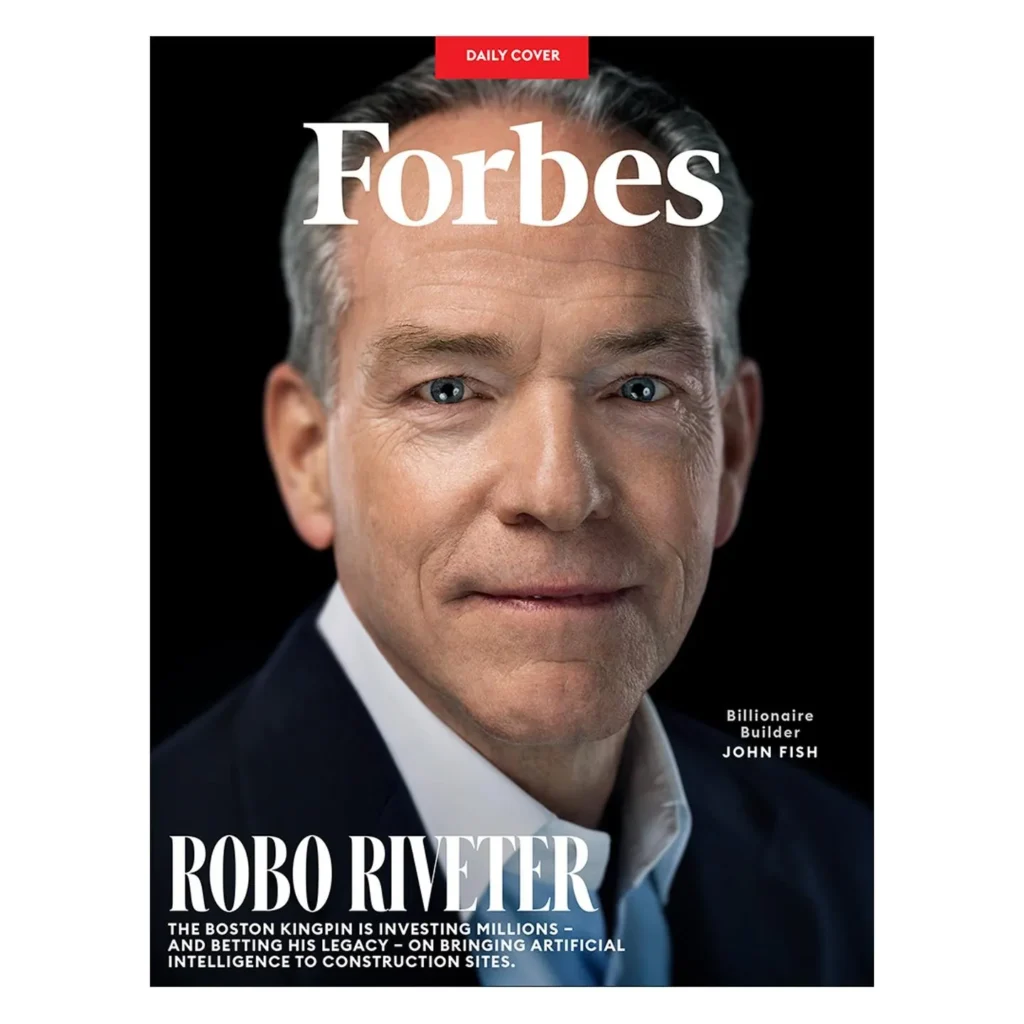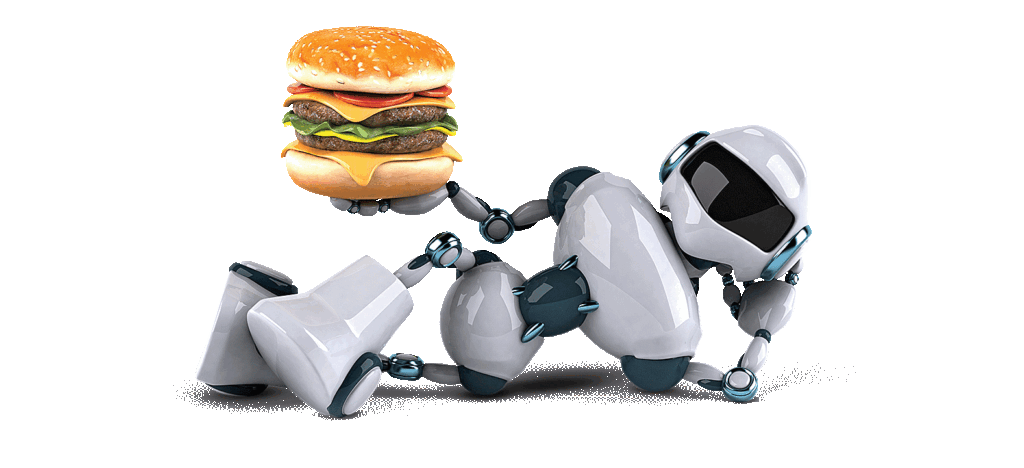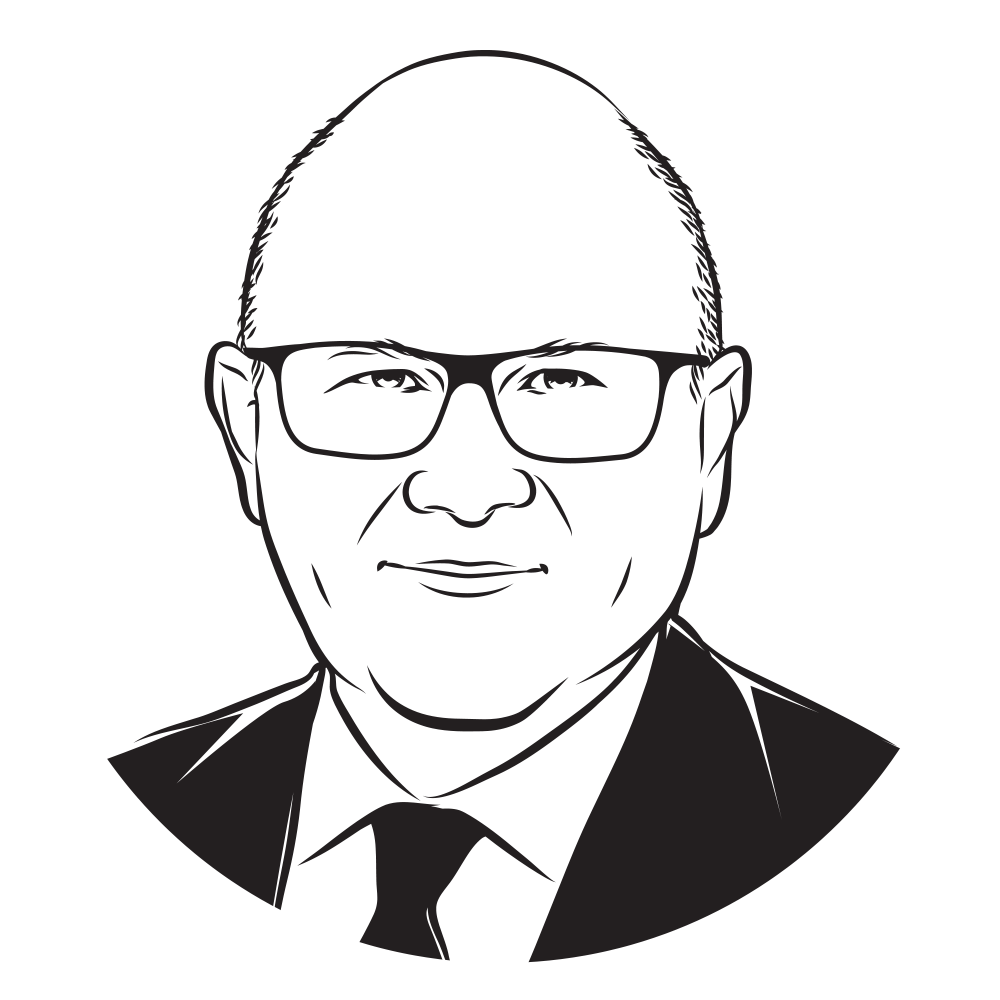Feb 20, 2024,06:30am EST
On a chilly December morning, John Fish finds himself outside, overlooking the bustling construction site of the 33rd floor of South Station Tower, a towering skyscraper under construction in downtown Boston. Despite the biting cold, Fish’s attention is fixed on a bright red crane below, carrying a load of metal panels through the icy air. It’s here that Fish shares his vision of automation.
“See that crane down there? There’s a camera installed on it that monitors its movements and registers all the data,” explains Fish in his unmistakable Boston accent. Dressed in black leather loafers, blue slacks, a vibrant construction vest, safety goggles, and a hard hat, Fish emphasizes safety while discussing the integration of technology. “We need to maximize efficiency while ensuring safety at every step,” he adds.
Amidst the noise of pneumatic nail guns and grinding steel on the bustling 14th floor, Fish elaborates on Suffolk’s embrace of the robotic revolution. The company is deploying small, two-foot-tall machines reminiscent of miniature tanks, which zip around the site, printing blueprints and layouts for workers. This innovation accelerates construction timelines and minimizes errors, Fish notes. “We’re implementing this technology across all our projects,” he declares confidently.

PHOTO BY MICHAEL PRINCE FOR FORBES
At 63 years old, John Fish is a seasoned veteran of the construction industry, having amassed a fortune erecting high-rises from coast to coast, stretching from Massachusetts to California. With a net worth of $2.3 billion, Fish’s wealth stems from his sole ownership of Suffolk, a Boston-based construction giant with $6 billion in revenue. Over the past two decades, Suffolk has left its mark on the American landscape, constructing over 150 million square feet of commercial real estate across the nation, including significant portions of Boston’s skyline and luxury hotels in Los Angeles and Miami.
Now, Fish sets his sights on revolutionizing the $2.1 trillion construction industry that has propelled him to success. His brainchild, Suffolk Technologies, is developing cutting-edge construction-focused software solutions, some of which are evolving into independent ventures. Concurrently, Fish’s venture capital arm has invested in numerous forward-thinking construction tech startups, ranging from 3D printing of walls to the production of emission-free portable power generators.
“Ours is the only industry where productivity has declined over the past 50 years instead of improving,” Fish remarks during a tour of Suffolk’s state-of-the-art headquarters in Roxbury, a blue-collar neighborhood in southern Boston, as he discusses the sector’s stagnation. “Consider the Empire State Building—it took 14 months to complete in the 1930s. Today, it would require five years.”
One obstacle lies in the resistance to robotics and artificial intelligence within the industry itself. General contractors, subcontractors, labor unions, and major management firms overseeing construction sites often cling to traditional methods, shunning technological advancements. Brent Thielman, an equity analyst at D.A. Davidson specializing in engineering and construction, observes, “Technology adoption rates in this industry are sluggish, and this trend is likely to persist. Ultimately, it’s a labor-driven market.”
WORKER DRONES
Every day, approximately 4 million robots report for duty globally, as reported by the International Federation of Robotics. While many of these robots are engaged in tasks like assembling electronics, household appliances, and automobiles, some have ventured into more unconventional domains.

JULOS/GETTY IMAGES
Bartender
Name: Makr Shakr 3.0
Manufacturer: Makr Shakr (introduced 2013)
Cost: $115,000
Average human bartender salary: $34,490
Fry Cook
Name: Flippy
Manufacturer: Miso Robotics (2017)
Cost: $48,000 per year
Average human fry cook salary: $31,000
Priest (Funerals)
Name: Pepper
Manufacturer: SoftBank Robotics (2014); Nissei Eco
Cost: $442
Average cost to hire a human priest: Up to $2,000
Security Guard
Name: Knightscope K5
Manufacturer: Knightscope (2013)
Cost: Less than $9 per hour
Average human security guard salary: $16 per hour
Amidst a labor market long plagued by recruitment challenges, the construction industry faces significant hurdles. In 2022, construction job openings hit an all-time high, as reported by the Associated Builders and Contractors (ABC) in its 23-year history of tracking data. Furthermore, costs have surged, with construction wages witnessing a 34% increase between 2012 and 2022, while input expenses like steel, cement, and wood have spiked nearly 40% since early 2020, according to ABC statistics.
John Fish believes that robots hold the key to resolving the labor shortage and mitigating rising costs. Introducing robots to construction sites presents formidable challenges, including regulatory scrutiny, client skepticism, financial constraints, and resistance from human workers. However, Fish asserts that such a move is imperative, regardless of the obstacles.
Data forms the other half of Fish’s strategy. Suffolk has invested heavily in analytics over the past decade, developing its own “special sauce” to monitor progress and manage costs across its 100 active job sites. To enhance these capabilities, Suffolk established Suffolk Technologies in 2019, focusing on developing new technologies and products. One such product, Ediphi, a cost-estimating software, has been spun off into its own entity, with plans for a second tool called Edge, a job site planning application.
Simultaneously, Fish has fostered a diverse portfolio of construction-related startups. Suffolk Technologies has invested over $50 million in more than 50 companies, including Rugged Robotics, Canvas, Augmenta, and OpenSpace. These startups leverage Suffolk’s job sites for experimentation while providing Suffolk with equity and insights into cutting-edge construction technology.
In response to the pandemic-induced shift in commercial real estate demand, Suffolk has diversified its project portfolio, bidding on projects like data centers, airports, hospitals, casinos, and government facilities. Fish anticipates that Suffolk’s technology will enable the company to submit lower-cost bids, complete projects more efficiently, and minimize overruns.
Fish’s journey in construction began in his childhood, working alongside his father, Edward Fish, who ran Peabody Construction. Eventually, John took the reins at Suffolk, founded by his father to compete with Peabody. Despite initial rivalry with his brother, Ted, who ran Peabody, John’s tenacity and commitment propelled Suffolk to prominence. Today, Suffolk continues to innovate under John Fish’s leadership, adapting to industry disruptions while honoring its rich legacy in construction.
HOW TO PLAY IT By Jon D. Markman

ILLUSTRATION BY PATRICK WELSH FOR FORBES
The rise of robotics and artificial intelligence (AI) is reshaping the world we live in and offering investment opportunities. One strategic investment avenue in this domain is PTC, a subscription-based software firm specializing in tools for business engineering, manufacturing, and service operations. PTC’s Industrial Internet of Things (IIoT) division leverages AI to enhance the efficiency of factory robots and integrates various manufacturing processes into a unified digital network, establishing a digital thread.
With a remarkable 26% year-over-year growth in fourth-quarter subscriptions, PTC demonstrates strong momentum. Considering this growth trajectory, analysts anticipate that shares could soar to $260 within the next 18 months, marking a substantial 40% increase from current levels.
Jon D. Markman, the president of Markman Capital Insight and editor of Fast Forward Investing, advocates for PTC as a promising investment opportunity amidst the transformative landscape of robotics and AI.
In the early 1990s, John Fish secured a pivotal client: nursing home tycoon Abe Gosman, a member of the Forbes 400 with a net worth nearing $500 million in 1996. Gosman’s mentorship propelled Fish’s firm, Suffolk, to construct over 100 nursing homes and assisted living centers, particularly in California and Florida, leading to national expansion with offices in Los Angeles and Miami. Then, the 2008 financial crisis hit hard.
Fish vividly recalls the moment when Suffolk lost over half of its business in a matter of hours, prompting a profound reevaluation of their value proposition amidst stiff competition. To adapt, Fish initiated data collection at construction sites to enhance efficiency, safety, and cost control. Jit Kee Chin, a former McKinsey consultant and MIT Ph.D. holder, joined Suffolk in 2017 to leverage this data effectively.
Today, Suffolk’s “Mission Control” team integrates project metrics into a real-time dashboard, empowering proactive problem-solving. With plans to invest heavily in robotics, Fish envisions Suffolk’s forthcoming robotics center in Roxbury as a hub for innovation, facilitating trials of cutting-edge solutions and fostering proprietary technology development.
As Fish observes a crane operator below, he contemplates a future where machines complement human workers, emphasizing the imperative for greater efficiency in construction. “Something’s gotta give,” Fish asserts, underscoring the need for innovation in an evolving industry.

